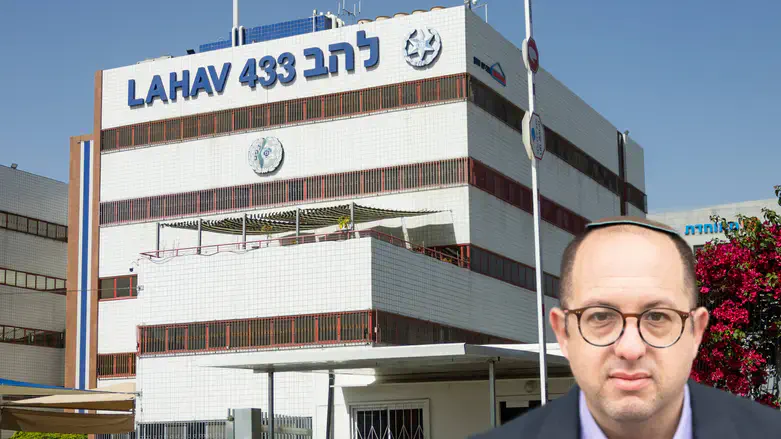
The police decided to release Zvika Klein, editor of the Jerusalem Post, who was investigated as part of the Qatar Gate affair. Klein had been under house arrest.
Klein was released without any restrictive conditions, but his mobile phone was taken and is still held by the police without a warrant.
In response to the statement by the Attorney General, which revealed the allegations against Klein, his associates published his version of the investigation following which he was sent to house arrest.
Klein claimed "I have never received any benefit or anything else from Qatar or anyone on its behalf. My visit to the country was conducted solely within the framework of my journalistic work, and that is exactly what I was investigated for – contrary to the illegal leaks from the interrogation rooms."
His associates added that "Zvika adhered to journalistic ethics throughout the coverage of Qatar in his newspaper. Contrary to what is reflected in the AG's statement, he was not part of any 'mechanism'. All his actions were strictly within the law and within the bounds of journalistic confidentiality, which is enshrined in clear rulings of the Supreme Court over the years. For this reason, he was also released this morning from house arrest and returned to a routine life, without any restrictive conditions. It is still unclear what he is suspected of or if indeed he is a suspect at all."
The response from the associates came after Attorney General Miahra and the state prosecutor published a statement today following Klein's investigation and the summons of other journalists to testify in the affair.
The statement clarified that Klein was originally summoned to give open testimony and not as a suspect. "As part of his testimony, significant suspicion was formed that the journalist was together with the Prime Minister's advisers part of the mechanism for receiving benefits from Qatar in exchange for promoting its interests."
As a result, "it was decided to proceed to an investigation under warning that focused on the issue of receiving benefits from Qatar."
